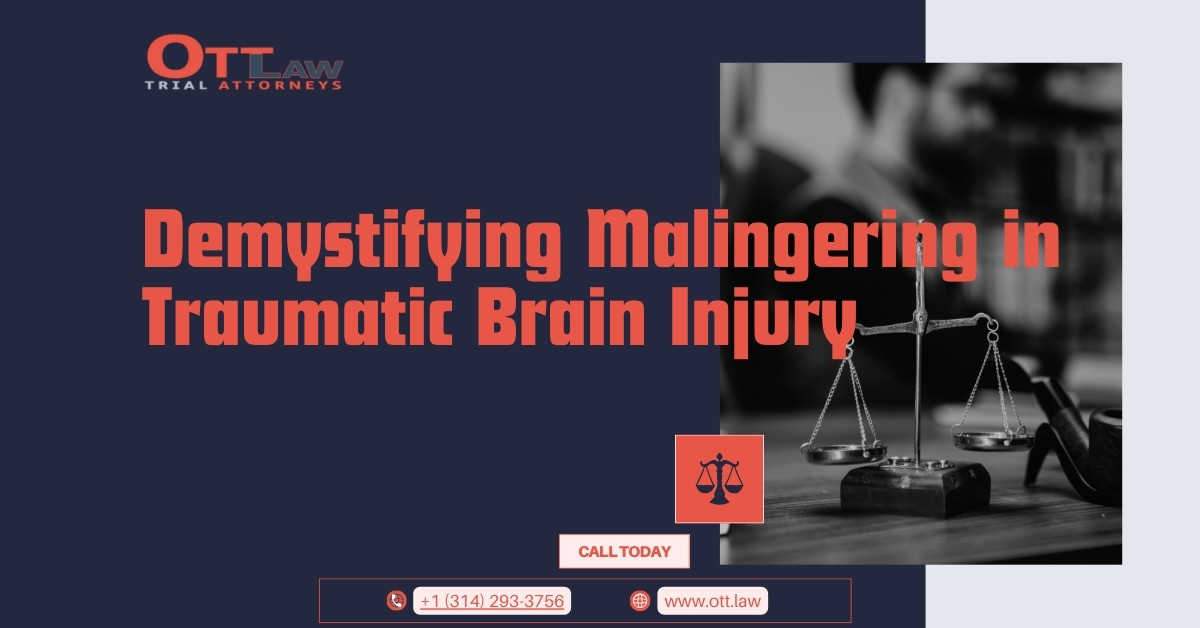Malingering, or the act of intentionally exaggerating or feigning illness or injury, often becomes a contentious topic in the realm of Traumatic Brain Injury (TBI). At OTT Law Firm, we consistently see misunderstandings that lead to hasty accusations against genuine victims. Here, we dissect the intricate dimensions of visual and cognitive impairment post-TBI and dispel some common misconceptions.
Malingering Allegations and Their Roots
When a TBI patient asserts visual issues but manages to pass conventional vision tests, it’s easy for skeptics to cry foul. But there’s a deeper narrative here:
- Brain Over Eyes: It’s not just about eye health. If the brain, the center of perception and understanding, is impaired, it might not interpret or communicate what the eyes see, leading to a kind of functional blindness.
- The Value of Specialization: General ophthalmologists might not grasp the full scope of such cases. Neuro-ophthalmologists, with their comprehensive understanding of brain-eye interactions, offer deeper insights.
Testing and Their Pitfalls
Standard tests, while valuable, are not foolproof and can sometimes be misleading:
- Fog Test Limitations: A lens blurs the vision of one eye in this test. But there’s more to visual health than just reading an eye chart. Vision comprises central vision, peripheral sight, depth perception, and more.
- The Challenges with Visual Field Tests: Consider a scenario where a patient has experienced severe physical trauma, including cervical and lumbar injuries. Expecting them to perform perfectly in a visual field test, which might require prolonged, uncomfortable postures, is unreasonable.
Beware of Improper Testing
Unscrupulous practices can sometimes taint the testing process:
- Manual Visual Field Testing Errors: This test, when done manually, requires presenting visual stimuli at the periphery of a patient’s vision. Inappropriate or lazy techniques can yield incorrect results.
- Reading Post-TBI: Challenges in reading post-TBI aren’t just about vision clarity. Fatigue, dry eyes, concentration issues due to various reasons, and irritability from extended testing can all influence a patient’s ability to read.
Conclusion
At the crux of it, understanding TBI and its repercussions on vision demands empathy, patience, and expertise. Snap judgments or accusations, especially without a thorough investigation, are not only misguided but also deeply unjust. At OTT Law Firm, we believe in comprehensive evaluations and advocate tirelessly for those grappling with the complexities of TBI.
Need Expert Legal Counsel? Contact Us:
- Address: 3544 Oxford Ave, Maplewood, MO 63143, United States
- Phone: +13142933756
- Email: joe@ott.law
- Website: OTT Law
References:

